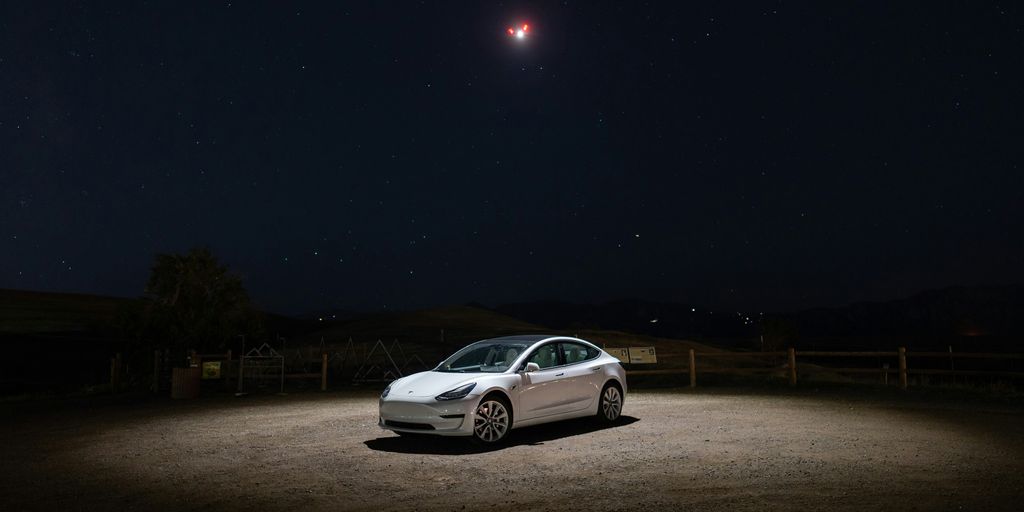When we talk about what makes someone successful, it’s easy to just look at money or fame. But for someone like Elon Musk, his definition of success seems to go way beyond that. He once said that for him, success is about how many useful things he can get done. This idea of ‘maximizing utility’ is a pretty interesting way to look at things, especially when you consider the huge projects he takes on. It makes you wonder if his unique view on success is what drives his ambitious goals, from rockets to electric cars.
Key Takeaways
- Elon Musk sees success as being useful, not just making money.
- He often focuses on big-picture goals, even if they seem risky.
- Musk believes in constantly improving and questioning old ways of doing things.
- He puts his own money into projects that might fail, just to push technology forward.
- His leadership style often involves deep technical knowledge and surprising insights.
Defining Success Through Utility
Maximizing Usefulness in Daily Endeavors
For Elon Musk, success isn’t about accumulating wealth or fame. It’s about how much good you can do. It’s a very practical approach. He seems to be asking himself every day, "How can I be useful today?" It’s not just about being busy, but about directing your energy toward things that actually matter. It’s a simple question, but it can be hard to answer honestly. It’s easy to get caught up in tasks that feel important but don’t really contribute to anything meaningful. It’s about redefining the blue ocean of value.
The Challenge of Achieving Utility at Scale
Being useful on a small scale is one thing, but being useful at scale is a whole different ballgame. It’s easy to help a friend or family member, but how do you help millions or billions of people? That’s the challenge Musk has taken on with his various ventures. It requires a different kind of thinking, a different kind of strategy. It’s not just about having good intentions, but about creating systems and technologies that can have a widespread positive impact. It’s about maximizing the "area under the code of usefulness," as Musk puts it. It’s about creating something that is not only useful but also accessible and affordable to as many people as possible. Time is the true currency.
The Interplay of Personal Well-being and Decision-Making
It’s easy to get burned out when you’re trying to be useful all the time. It’s important to take care of yourself, both physically and mentally. If you’re not healthy, you can’t be useful to anyone else. It’s a balancing act. You have to find a way to contribute to the world without sacrificing your own well-being. This involves making tough decisions about how to allocate your time and energy. It means saying no to things that don’t align with your goals and prioritizing things that do. It also means being honest with yourself about your limitations and seeking help when you need it. It’s about finding a sustainable way to live a useful and fulfilling life.
Beyond Conventional Metrics of Success

It’s easy to fall into the trap of measuring success with things like money, fame, or power. But what if those aren’t the real indicators? What if there’s something more to it than just climbing the corporate ladder or accumulating wealth?
Prioritizing Impact Over Profitability
Sometimes, the most successful ventures aren’t the ones that make the most money. Instead, they’re the ones that make a real difference in the world. Think about companies developing sustainable energy solutions or organizations working to improve education in underserved communities. These efforts might not generate huge profits right away, but their long-term impact can be far more significant. It’s about creating value that goes beyond the bottom line.
The Driving Force of Idealism and Vision
Many successful people are driven by a strong sense of idealism and a clear vision for the future. They see a problem that needs solving or an opportunity to make things better, and they dedicate themselves to pursuing that goal, even when it’s difficult or unpopular. This kind of passion and commitment can be a powerful motivator, pushing them to overcome obstacles and achieve things that others might consider impossible. It’s about believing in something bigger than yourself and working tirelessly to bring that vision to life. It’s about having a leadership quality that inspires others.
Unwavering Commitment to Long-Term Goals
True success often requires a long-term perspective. It’s not about quick wins or instant gratification, but about building something lasting and meaningful over time. This means staying focused on your goals, even when faced with setbacks or distractions. It means being willing to invest the time, effort, and resources needed to achieve your vision, even if the rewards aren’t immediately apparent. It’s about playing the long game and having the patience and perseverance to see it through. It’s about maximizing usefulness at scale.
Consider this:
- Developing a groundbreaking technology might take years of research and development.
- Building a successful business requires consistent effort and adaptation over time.
- Making a lasting impact on society often involves a sustained commitment to a cause.
Elon Musk’s Approach to Problem-Solving
Questioning and Refining Requirements
Elon Musk’s approach to problem-solving starts with a fundamental step: questioning everything. He believes that requirements, no matter how established, are often flawed to some degree. This involves a rigorous examination of the initial assumptions and constraints to identify areas for improvement or even complete elimination. It’s not about blindly following instructions, but about understanding the ‘why’ behind them. This can lead to simpler, more efficient solutions. For example, before optimizing a process, he asks if the process is even necessary in the first place.
The Difficulty of True Simplification
It’s easy to say ‘simplify,’ but actually doing it is hard. True simplification requires a deep understanding of the underlying problem and a willingness to challenge conventional wisdom. It’s about stripping away unnecessary complexity and focusing on the core essence of what needs to be achieved. This often involves a lot of trial and error, and a willingness to iterate and refine the solution until it’s as simple and elegant as possible. Think of it like this: you’re not just cutting things out; you’re carefully reshaping the problem to be inherently simpler. This is especially important when considering electric vehicle manufacturer challenges.
Iterative Improvement and Constant Learning
Musk’s problem-solving approach is heavily reliant on iterative improvement. This means constantly testing, learning, and refining solutions based on real-world feedback. It’s a cycle of building, measuring, learning, and repeating. This approach allows for rapid adaptation and ensures that solutions are constantly evolving to meet changing needs. It also fosters a culture of continuous learning, where mistakes are seen as opportunities for growth. This is similar to how tech companies apply iterative innovation to domains outside of software. Here are some key aspects of this process:
- Rapid Prototyping: Quickly building and testing initial versions of solutions.
- Data-Driven Decisions: Using data to inform design choices and identify areas for improvement.
- Feedback Loops: Establishing clear channels for gathering feedback from users and stakeholders.
The Role of Risk and Conviction in Innovation
Investing in High-Risk, High-Reward Ventures
It’s no secret that innovation rarely comes from playing it safe. Elon Musk’s ventures are characterized by a willingness to invest in projects with a high probability of failure, but also the potential for massive reward. Think about SpaceX’s early rocket launches – many exploded, but the persistence paid off. This approach contrasts sharply with more risk-averse strategies, where guaranteed incremental gains are favored over potentially revolutionary breakthroughs. Taking risks in entrepreneurship can lead to significant benefits.
Accelerating Industry Development Despite Odds
Musk’s companies often tackle problems that others deem too difficult or unprofitable. This willingness to challenge conventional wisdom can accelerate the development of entire industries. For example, Tesla didn’t just build an electric car; it pushed the entire automotive industry to rethink its approach to electric vehicles. This involves not only technological innovation but also a degree of market disruption that forces competitors to adapt or be left behind.
The Personal Cost of Pursuing Ambitious Projects
Pursuing ambitious projects comes at a personal cost. The long hours, intense pressure, and public scrutiny can take a toll. It’s a demanding path that requires immense dedication and resilience. The pressure to deliver on seemingly impossible goals, as some have noted, can be immense. It’s a high-stakes game where the rewards are great, but the price can be steep. Consider the following:
- Burnout is a real risk.
- Relationships can suffer.
- Public failures are highly visible.
Technical Acumen and Leadership Style

Deep Dive into Engineering-Level Decisions
It’s pretty well-known that Elon Musk isn’t just a figurehead; he gets down into the nitty-gritty of engineering. He’s not afraid to challenge assumptions or question the status quo, even when it means going against established practices. This hands-on approach allows him to make informed decisions and push the boundaries of what’s possible. It’s not just about understanding the high-level concepts, but also the specific challenges and limitations at the component level. This is especially important when you’re trying to do things that have never been done before.
Surprising Displays of Technical Proficiency
There are countless stories about Musk’s ability to jump into technical discussions and offer insightful solutions. He can discuss the intricacies of rocket engine design, battery chemistry, or software architecture with apparent ease. This isn’t just about having a broad understanding; it’s about having a deep, working knowledge of the underlying principles. It’s one thing to read about something, it’s another to actually understand how it works and how to improve it. This technical CEO approach is not common.
Motivating Teams Through Sharpness and Insight
Musk’s leadership style isn’t for everyone. He’s known for his demanding expectations and direct communication style. However, his ability to articulate a clear vision and challenge his teams to achieve ambitious goals can be incredibly motivating. He doesn’t shy away from pointing out flaws or areas for improvement, but he also recognizes and rewards exceptional performance. It’s a high-pressure environment, but it’s also one where people feel like they’re making a real difference. Here are some key aspects of his leadership:
- Setting audacious goals: He sets goals that seem impossible, pushing teams to think outside the box.
- Providing clear direction: He articulates a clear vision and ensures everyone understands their role in achieving it.
- Demanding excellence: He expects the best from his teams and holds them accountable for results.
The Visionary Pursuit of Human Advancement
Embodying Techno-Optimism for the Future
Musk’s vision isn’t just about making cool gadgets; it’s rooted in a deep techno-optimism. He genuinely believes technology can solve humanity’s biggest problems. It’s not just about incremental improvements, but about fundamentally changing the trajectory of our species. He’s talked about how he’s been interested in the human brain since forever, and how understanding it better could solve many problems.
Counteracting Short-Term Concerns with Long-Term Vision
It’s easy to get bogged down in the day-to-day, but Musk consistently pushes for a longer-term perspective. He’s willing to take risks and endure criticism because he’s focused on goals that might not be realized for decades. This involves a certain level of ignoring the noise and staying true to a grander plan. He aims to give people who have neuron damage a communication data rate that exceeds normal humans.
Wresting Meaning from the Universe Through Force of Will
Ultimately, Musk’s endeavors seem driven by a desire to leave a lasting mark. It’s about pushing the boundaries of what’s possible and, in doing so, imbuing the universe with a little more meaning. It’s a bold ambition, and one that requires a relentless drive and unwavering belief in the power of human ingenuity. He sees the potential for superhuman vision and other augmentations, pushing the limits of what’s possible.
Here’s a breakdown of some key areas:
- Space Exploration: Making humanity a multi-planetary species.
- Sustainable Energy: Transitioning the world to renewable resources.
- Human Augmentation: Enhancing human capabilities through technology.
Wrapping It Up: What We Learned About Elon Musk’s Idea of Success
So, after looking at all this, it seems pretty clear that Elon Musk doesn’t really measure success the way most people do. It’s not about how much money he makes, or even if his companies always hit their targets right away. He’s more about getting big, useful things done, even if they seem impossible to everyone else. He’s okay with taking huge risks, putting everything on the line, because for him, the goal is bigger than just profit. It’s about pushing humanity forward, making those wild, sci-fi dreams a reality. He just keeps going, even when things look bad, because the idea itself is what drives him. It’s a different way to think about success, for sure, and it makes you wonder what else we could all achieve if we focused less on the usual stuff and more on just being useful.
Frequently Asked Questions
What does Elon Musk mean by ‘success’?
Elon Musk thinks success means doing as many helpful things as possible. He wants to make things that are useful to a lot of people, even if it’s hard to do on a big scale.
Does Elon Musk only care about making money?
He doesn’t just care about making money. He’s more interested in making a big difference and seeing his big ideas come to life, even if they seem risky.
How does Elon Musk solve problems?
He likes to ask tough questions about how things are supposed to work and tries to make them simpler. He’s always trying to make things better step by step.
Why does Elon Musk take such big risks?
He’s willing to put his money and effort into projects that might not work out, but could change the world if they do. He believes these big risks are worth it to push things forward.
Is Elon Musk good with technical stuff?
Yes, he’s known for knowing a lot about how things are built and designed. He often surprises people with how much technical detail he understands, which helps him lead his teams.
What is Elon Musk’s overall vision for the future?
He believes in a bright future where technology helps humanity. He focuses on long-term goals, like going to Mars, even when people worry about short-term problems. He wants to create meaning for humanity through big projects.














